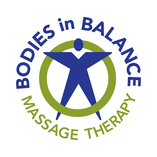The American Institute of Stress estimates that job-related stress costs American businesses $300 billion every year. This includes missed work time, workplace accidents, repetitive motion injuries, employee turnover, diminished productivity and direct costs of medical, legal, and insurance. And that figure doesn’t even include personal costs in doctor bills, missed work, and illness.
Stress is correlated with many common health conditions, including hypertension, musculoskeletal pain & disorders, depression, anxiety, heart attacks, stroke, immune system disturbances that increase susceptibility to infections and colds, as well as autoimmune diseases like rheumatoid arthritis and multiple sclerosis. In addition stress can have direct effects on the skin (rashes, hives, atopic dermatitis, the gastrointestinal system (GERD, peptic ulcer, irritable bowel syndrome, ulcerative colitis) and can contribute to insomnia and degenerative neurological disorders like Parkinson's disease.
Research shows that massage helps reduce the effects of stress. The exact hows and whys is a whole other blog post (stay tuned). But in a nutshell, massage helps your body “turn off” chronic stress patterns in the hormone, nervous, immune, circulation, & digestive systems. Your body can then begin to operate in a normal, non-emergency state. Among the changes with decreased stress: digestion increases and improves, heart rate drops, adrenaline and cortisol levels are lowered while endorphins and serotonin increase.
So try this equation for your bottom line:
More Massage = Less Stress & Better Sleep= Better Health, Fewer Missed Work Days & Less $$ to doctors
Stress is correlated with many common health conditions, including hypertension, musculoskeletal pain & disorders, depression, anxiety, heart attacks, stroke, immune system disturbances that increase susceptibility to infections and colds, as well as autoimmune diseases like rheumatoid arthritis and multiple sclerosis. In addition stress can have direct effects on the skin (rashes, hives, atopic dermatitis, the gastrointestinal system (GERD, peptic ulcer, irritable bowel syndrome, ulcerative colitis) and can contribute to insomnia and degenerative neurological disorders like Parkinson's disease.
Research shows that massage helps reduce the effects of stress. The exact hows and whys is a whole other blog post (stay tuned). But in a nutshell, massage helps your body “turn off” chronic stress patterns in the hormone, nervous, immune, circulation, & digestive systems. Your body can then begin to operate in a normal, non-emergency state. Among the changes with decreased stress: digestion increases and improves, heart rate drops, adrenaline and cortisol levels are lowered while endorphins and serotonin increase.
So try this equation for your bottom line:
More Massage = Less Stress & Better Sleep= Better Health, Fewer Missed Work Days & Less $$ to doctors


 RSS Feed
RSS Feed

